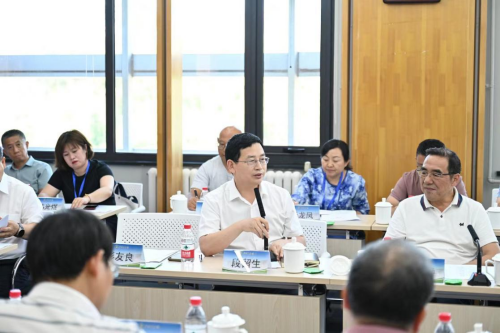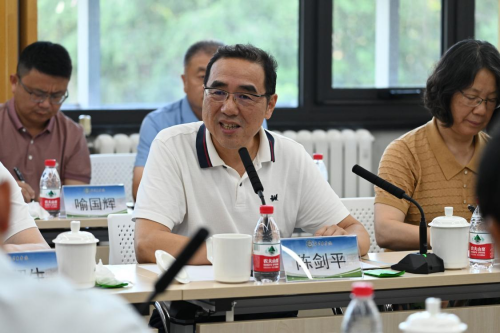Recently, the Plant Protection High-quality Development Forum was held in Beijing, which was sponsored by Northwest A&F University and China Agricultural University and co-organized by Beijing University of Agriculture. More than 40 deans of plant protection colleges, experts and scholars from more than 30 agricultural universities across the country attended the forum andshared views.

In his speech, Duan Liusheng, Deputy Secretary of the Party Committee and President of BUA, introduced how the school's high-quality Party building has led high-quality development, cultivation of new talents who know and love agriculture, and discipline construction. He pointed out that as an urban modern agricultural and forestry university, BUA has always adhered to the fundamental principle of morality cultivation and talent training, and the mission of strengthening agriculture and promoting rural development. It has focused on cultivating high-quality application-oriented talents with a strong sense of social responsibility, solid professional knowledge, innovative entrepreneurial spirit and practical ability. Many outstanding graduates from BUA are now serving the grassroots and working diligently, and have become the backbone of the capital's economic and social development, especially the development of the agricultural industry. In the future, we will continue to strengthen cooperation with other agricultural universities, continuously deepen the integration of production and education, build a collaborative innovation model for plant protection talent training, and strive to improve the level of training new talents who know and love agriculture, to make constructive contributions to the comprehensive rural revitalization and the construction of a country with strong agriculture.

Chen Jianping, academician of the Chinese Academy of Engineering, pointed out that universities should vigorously cultivate high-level talents, promote scientific and technological innovation and accelerate commercialization of scientific and technological achievements. All agricultural-related universities should develop in a complementary manner, deeply integrate themselves into local economic and social development, continuously strengthen the faculty team, cultivate plant protection professionals based on demand, promote the high-quality development of the plant protection discipline, and contribute greater efforts to better serve national strategies and regional economic and social development.

Hu Xiaoping, Dean of the College of Plant Protection at Northwest A&F University, delivered a keynote speech focusing on the cultural cultivation of plant protection education and talent training, facultybuilding, scientific and educational platforms, curriculum development, talent training models, management and education evaluation. He pointed out that ideological and political education should be integrated into the entire process of education, teaching and talent training, and efforts should be made to vigorously promote education based on production, facilitate production through education, and integrate industry and education. In the process of building plant protection majors, all colleges and universities should have clear goals, promote classified construction, and achieve high standards, advantages, and characteristics in different aspects. The participants conducted in-depth discussions on promoting innovation and high-quality development in plant protection based on practical issues in plant protection teaching and scientific research.
The participants also visited the National University Science Park in BUA. They highly praised the school's practices and achievements in fully leveraging the advantages of the university's science park to integrate innovation resources, commercialize technology achievements, incubate hi-tech startup businesses, foster innovative talents, lead open and collaborative development, vigorously promote technology achievement commercialization, empower rural revitalization with science and technology, and serve the development of the capital in the new era.
 LATEST NEWS
LATEST NEWS
 search
search


